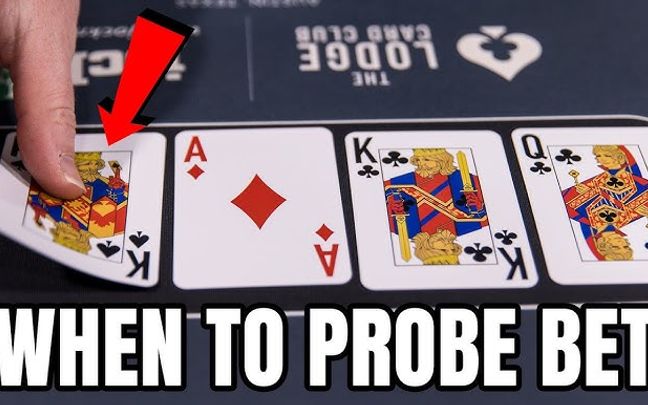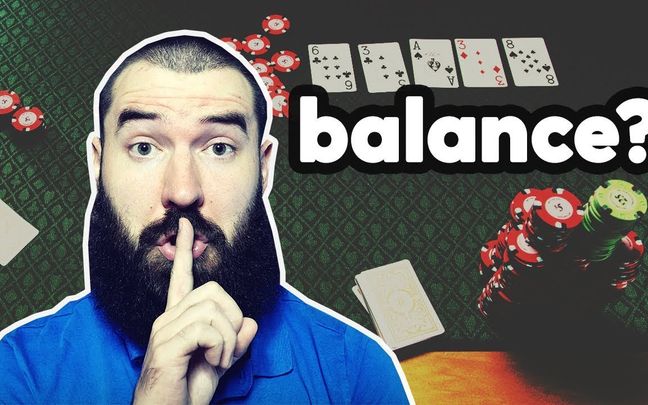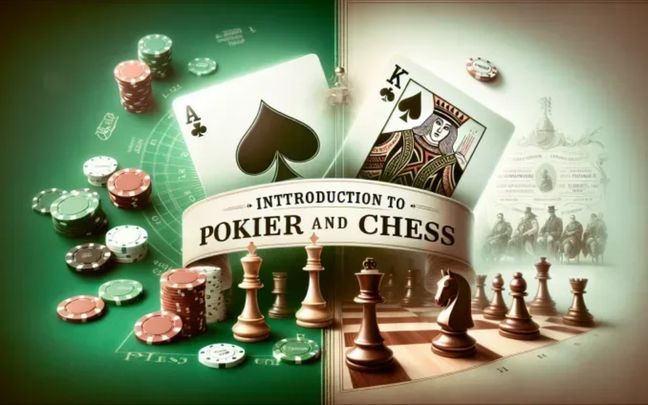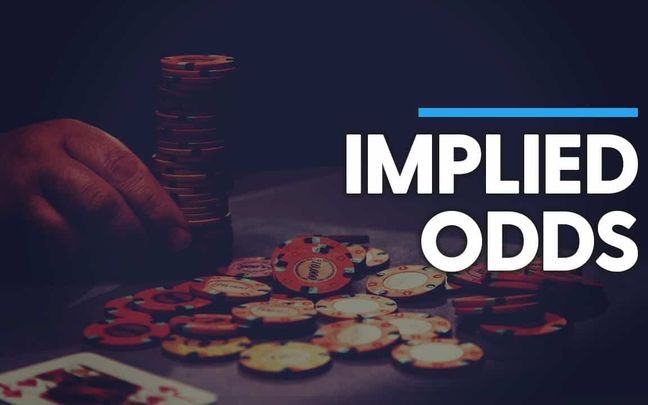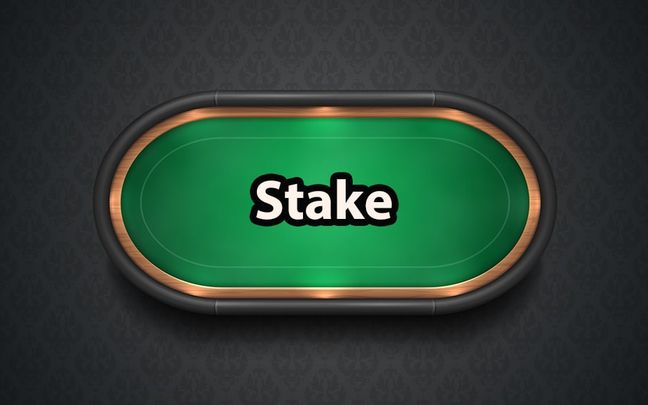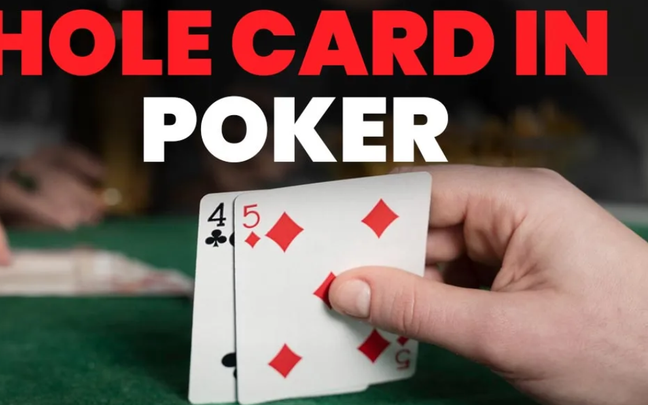Reverse Implied Odds is an important concept in poker that helps you better understand the risks and benefits of calling bets in various situations. Unlike Implied Odds, Reverse Implied Odds focuses on the potential for your opponent to win more than you if you continue to invest chips into the pot.
Understanding this concept will enable you to make more strategic decisions in each hand. This article aims to clarify the meaning and application of Reverse Implied Odds in poker.
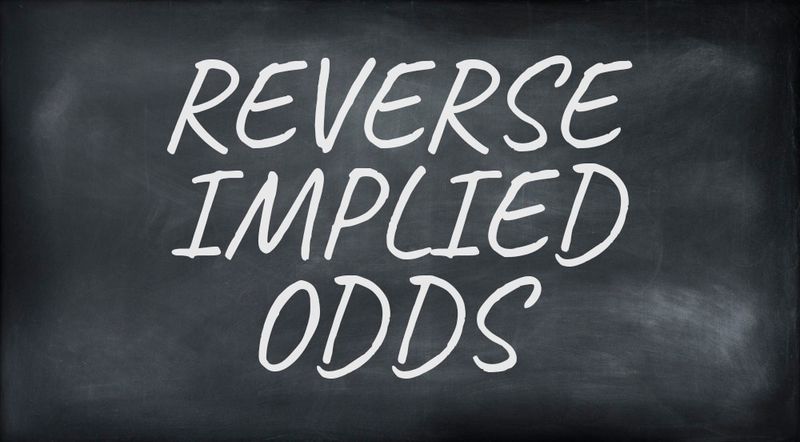
Reverse Implied Odds is an important concept in poker.
What is Reverse Implied Odds in Poker?
Reverse Implied Odds is an important concept in poker, related to evaluating the value of a hand in relation to the bets you might have to make in the future. This concept contrasts with Implied Odds, where players assess the potential to gain profit from the pot in the future if they complete their hand. Instead, Reverse Implied Odds focuses on the likelihood that you will have to invest more money in the future if your opponent completes a stronger hand.
Specific Definition of Reverse Implied Odds
Reverse Implied Odds refers to the possibility that a player may lose money in the future due to the appearance of cards favorable to an opponent. Specifically, even though you may have a relatively strong hand, if the next card comes out and helps your opponent form a stronger hand, you may have to bet additional money into the pot, resulting in greater losses.
Situations Where Reverse Implied Odds Arise
Reverse Implied Odds typically occurs in situations where your hand may be strong, but it is not the best hand. For example, if you have a high pair and a community card creates a flush draw for your opponent, it is highly likely that you will have to bet more if your opponent completes a stronger hand. This requires you to think carefully before deciding to call.
How to Calculate Reverse Implied Odds
When assessing Reverse Implied Odds, you need to consider the potential cards that could come out and the hands your opponent might be holding. You should:
- Consider the Community Cards: Identify which cards could help your opponent create a stronger hand.
- Predict Your Opponent's Hand: Try to visualize the hands your opponent might have based on their betting patterns and playing style.
- Evaluate the Pot: Consider the size of the current pot and how much you could lose if your opponent completes a stronger hand.
Impact on Playing Decisions
Reverse Implied Odds can significantly influence your playing decisions in poker. When you recognize that Reverse Implied Odds is at play, you may choose not to call or even fold, even if you have a seemingly strong hand. This is particularly important in situations with multiple opponents or when the pot is large, as the risks can be higher.

Reverse Implied Odds helps identify the risks when calling a bet.
A Specific Example of Reverse Implied Odds in Texas Hold'em
Imagine you are playing a hand of Texas Hold'em, and you've been dealt two strong cards: A♠ A♥ (a pair of Aces). In this situation, you feel confident about your hand, especially when you see the three community cards on the table: 7♣, 8♣, and 9♠. With your current hand, you have a very strong pair, and in typical circumstances, many players would think they are in a favorable position to call a bet.
However, the situation becomes complicated when you consider the possible hands your opponents might hold. The community cards form a consecutive sequence (7, 8, 9), and furthermore, there are two cards of the same suit (c♣). This indicates that stronger hands like a flush or a straight could be possible, and you need to exercise caution.
Analyzing Your Hand
With A♠ A♥, you are confident in your chances of winning. However, you need to understand that even though you have a strong pair, you do not have absolute control over the hand. If your opponent holds 10♣ J♣, they will have a stronger straight than you. Moreover, if a club like c♣ appears on the next round, it opens the door for opponents holding cards like 2♣ or 3♣ to make a flush.
Predicting Your Opponent's Hand
In poker, predicting your opponent's hand is crucial. You need to consider which cards could help them. If you have been observing how your opponent has played throughout the hand, you might have some useful information. If they bet heavily in the previous round and continue to bet in this one, it’s likely they hold a better hand.
This is particularly important if you know they are skilled players, capable of reading hands well and exploiting the cards on the table.
The Impact of Reverse Implied Odds
When you decide to call a bet in the next round, you need to consider not only your own hand but also the future bets you may have to make. Reverse implied odds are clearly illustrated in this scenario: although you have a strong pair, you may still lose if your opponent completes a stronger hand.
Let’s say you bet into the pot, and your opponent decides to call. If the next card is c♣, you will find it difficult to make a decision. Should you continue to bet with your pair of Aces, or should you consider folding? If you choose to bet heavily and your opponent raises, you will face significant losses if they indeed have a better hand.
The Consequences of Ignoring Reverse Implied Odds
If you are unaware of reverse implied odds in this situation, you may easily fall into a trap. If you make a strong bet and your opponent continues to call, it is highly likely that they are holding a stronger hand. When you eventually realize you are losing, it may be too late, and you will have to accept greater losses than if you had opted not to call in the first place.
The example above illustrates the importance of understanding reverse implied odds in poker. A hand that appears strong does not necessarily equate to victory. To become a skilled poker player, you need to not only know your own hand but also possess the ability to read the situation and anticipate your opponent's actions. A clear understanding of reverse implied odds will help you make more informed decisions, minimize risks, and maximize profits in every hand.

When there are high Reverse Implied Odds, you may face significant losses.
In summary, Reverse Implied Odds is an important concept in poker that helps you make better decisions based on potential future losses. Understanding and applying Reverse Implied Odds can help you minimize risks and optimize your playing strategy. By assessing situations and the potential of your opponents, you can protect your chips while increasing your chances of winning in high-stakes hands.


